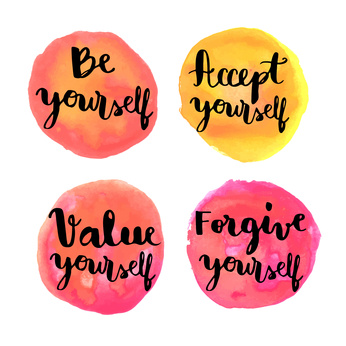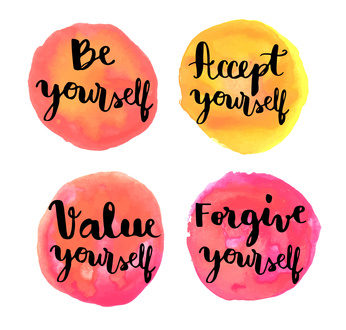We all make mistakes. It’s one of the greatest beauties and also one of the worst experiences of conscious being. It’s beautiful, in that a mistake can help us grow, and yet terrible, because it can make us feel some of the most difficult emotions about ourselves.
How do we free ourselves from these difficult emotions, this self-blame, that can cloud over our thoughts at every turn? While time can help to heal wounds, there are steps that you can practice to speed this process.
Step 1: Remember that life is a learning experience
The reason that we made a mistake in the past is either because we a) consciously made a wrong decision after thinking it through, at least briefly, or b) because we did not trust our gut or think things through logically. From a) we can recover, because we can learn from it what not to do when presented with a similar situation. We can make darn sure not to repeat this mistake. From b) we can learn to trust ourselves more, and not let other influences sway us.
Step 2: Forgive yourself
We can’t go back and “fix” mistakes, no matter how much we want to. Thinking about the endless possibilities of what could’ve happened if we had done something differently, we “should’ve” done this, or we “should’ve” done that… It’s a vicious loop that has no end.
To stop this thinking, we first need to forgive ourselves for our mistakes. You are not an inherently bad person. Everyone makes mistakes. Repetition of poor behaviour or judgement is what can begin to define us, but it is always escapable.
Forgive yourself for your mistakes, and make sure that your future looks brighter.
Step 3: Do things to better yourself
 One of the best ways to recover from a mistake is to do something that makes you a better, or more well-rounded person. A “mistake” will generally make you feel like a “worse” person. Instead of putting your energy into dwelling on the past, you need to put your energy into the future, or at the very least, the present.
One of the best ways to recover from a mistake is to do something that makes you a better, or more well-rounded person. A “mistake” will generally make you feel like a “worse” person. Instead of putting your energy into dwelling on the past, you need to put your energy into the future, or at the very least, the present.
Activities like learning a new skill, such as baking, meditation, volunteering, tracing a family tree, or stock trading, will invigorate the mind and keep it off the past. Something interesting that you can throw yourself into when you feel these feelings of blame creeping up will better you, and create peace within your mind.
Remember this mantra, from of the grandfathers of psychology, Carl Jung – “I am not what happened to me. I am what I choose to become”.
If you are finding yourself unable to escape from self-blame, then it may be time to talk to someone about it, to free yourself from your repetitive inner thoughts. If you cannot identify a friend, or one of the wider whānau that you feel you can trust, a first port of call can be your doctor, to refer you to a counsellor or psychologist. While blaming yourself for past mistakes may be normal, excessive daily dwelling on these type of thoughts can be a red flag to improve your mental health with the help of a professional.









Join the Discussion
Type out your comment here:
You must be logged in to post a comment.